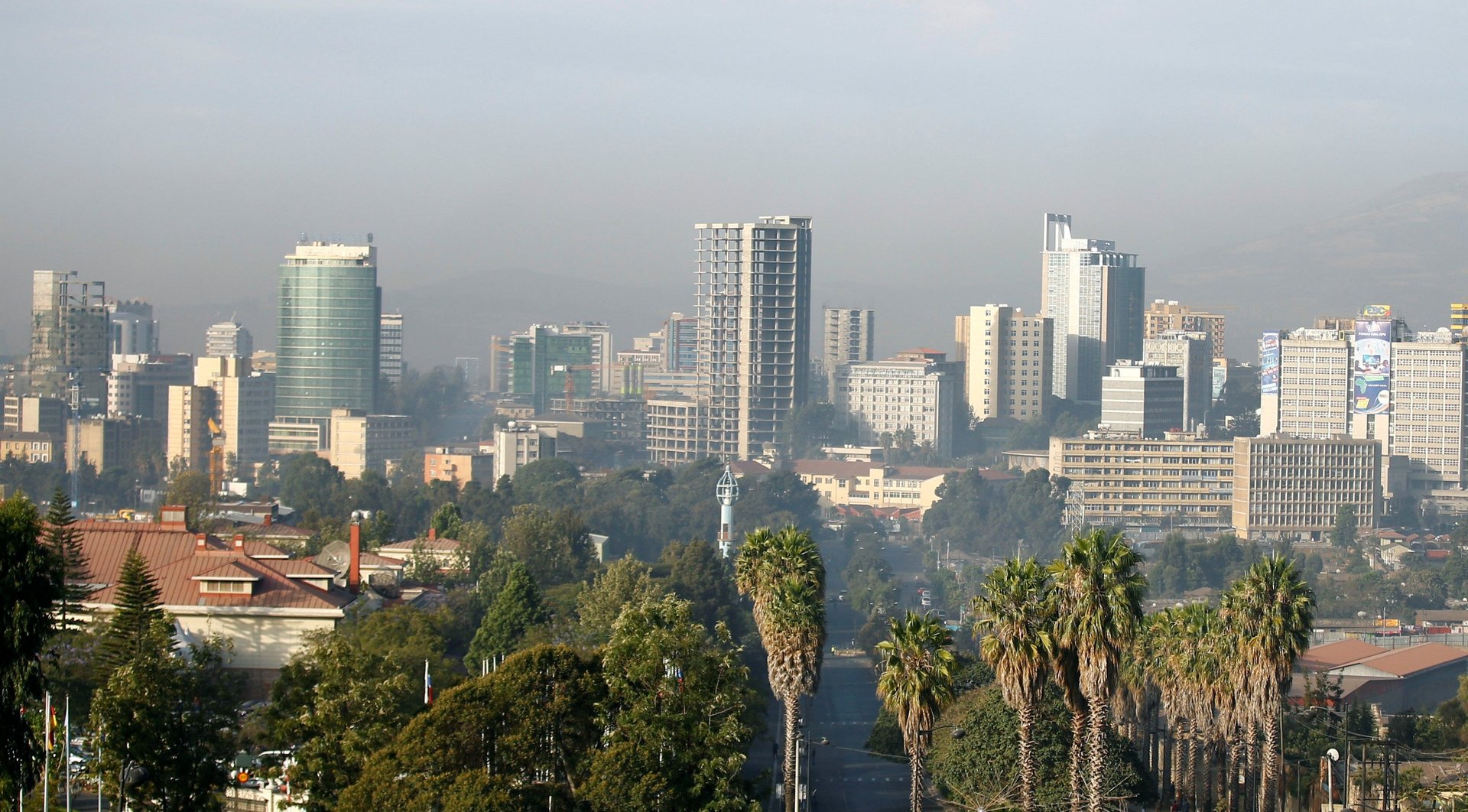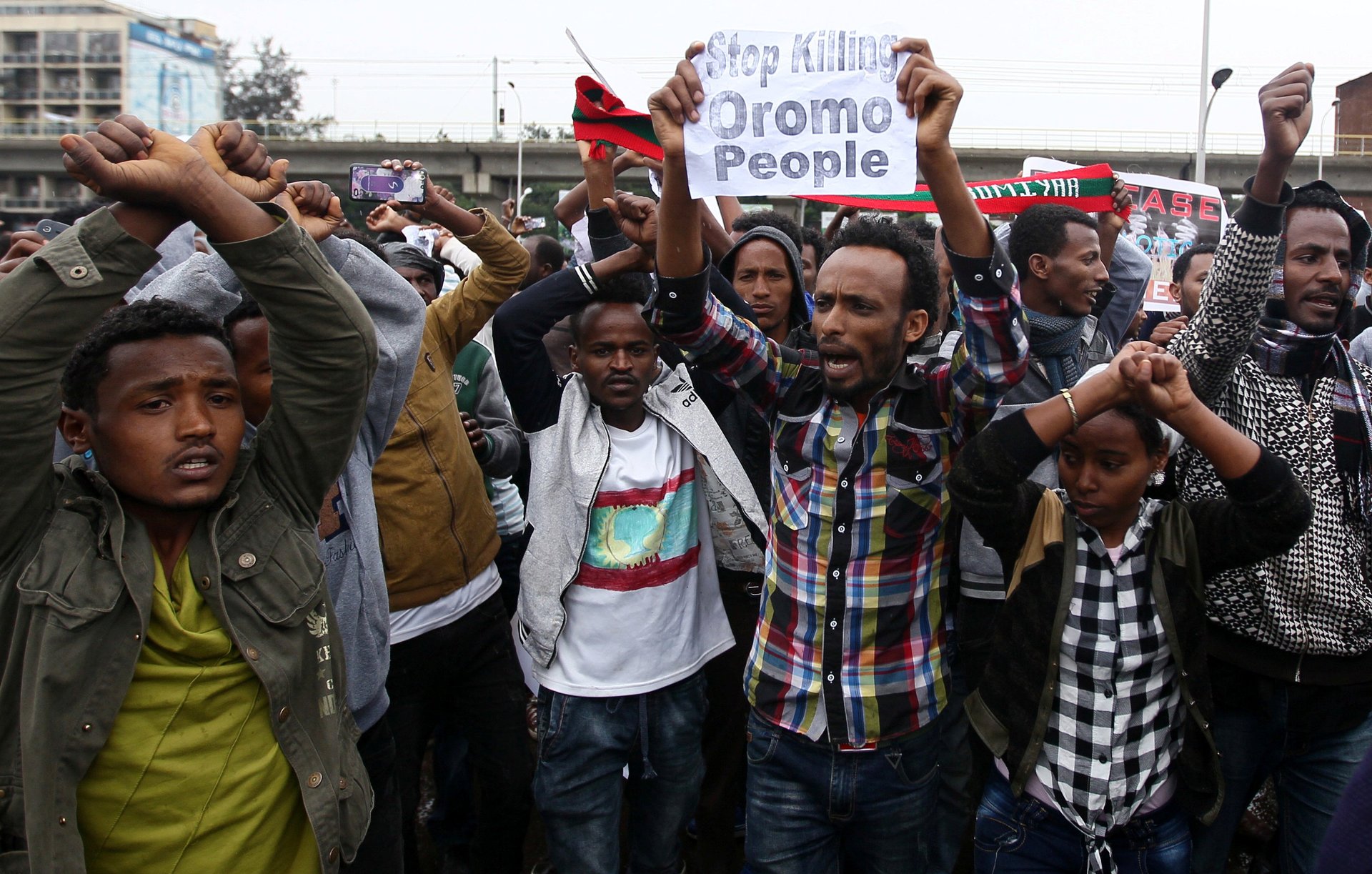Ethiopians are having a tense debate over who really owns Addis Ababa
Nine months into a state-of-emergency imposed to quell popular unrest, Ethiopia’s ruling party, the Ethiopian People’s Revolutionary Democratic Front (EPRDF), has unveiled its first significant political concession. But the furor surrounding the draft bill presented to parliament last week reveals just how deep tensions in Africa’s second most populous country still run. At stake is the answer to a highly charged question: who owns Addis Ababa?


Nine months into a state-of-emergency imposed to quell popular unrest, Ethiopia’s ruling party, the Ethiopian People’s Revolutionary Democratic Front (EPRDF), has unveiled its first significant political concession. But the furor surrounding the draft bill presented to parliament last week reveals just how deep tensions in Africa’s second most populous country still run. At stake is the answer to a highly charged question: who owns Addis Ababa?
For Oromos, who make up at least a third of the population and formed the backbone of last year’s mobilization against the central government, the answer is simple: the federal capital, which they call Finfinne, belongs to Oromia. They recount a long history of grievance which casts Oromos as colonial subjects violently displaced from their land and alienated from their culture.
This anger became especially acute in the past decade as Addis Ababa expanded rapidly and when, in April 2014, the authorities published a new master plan which proposed further eviction of Oromo residents and farmers in the name of development. “The issue of Finfinne is the heart of our politics,” says Gemechis, an Oromo resident of the city. “It is where we lost everything.” The master plan was dropped in January 2016 but demonstrations continued unabated until October.
Addis Ababa, with a population approaching four million people, is also home to the African Union and the UN Economic Commission for Africa and is widely regarded as Africa’s diplomatic capital—and indeed the world’s third largest diplomatic hub.

The new bill is a symbolically important effort to address some of the protesters’ demands, and to give concrete meaning to Oromia’s constitutionally-enshrined “special interest” in the capital. Proposed changes include making Afan Oromo an official language of the federal government alongside Amharic, as well as setting up Afan Oromo schools in the city; renaming the city “Finfinne/Addis Ababa”; restoring original Oromo names of public squares, roads and neighborhoods; and the establishment of a joint council with the federal government to administer the city.
It is a watered down version of an earlier draft that reportedly met with much objection inside the ruling party. This is not surprising since the meaning of “special interest” has never been fully spelt out and there is much debate as to how much privilege Oromos should have in a multiethnic city that, despite being located entirely within Oromia, has a population that is only around 20% Oromo.
For many activists the revised bill is wholly insufficient. There are no plans to “pay a penny” to Oromia for use of its natural resources, such as water, or for dumping the city’s waste on its farmlands, says Seyoum Teshome, an academic and blogger. “The bill is trash.” He and others argue that promises to pay farmers proper compensation for further evictions merely proves that the government still intends to expand the boundaries of the city.
Proposals to put the Afan Oromo language on par with Amharic are more welcomed since one of the key grievances of unemployed Oromo youth is that they struggle to get government jobs. But official quotas for Oromo representation in the city council is for many a non-negotiable. “The land must be administered by Oromos,” says Tolasa, a pharmacist who spent five years in prison for protesting the relocation of the regional state government away from Addis Ababa back in the early 2000s.
The controversy matters because it reflects stresses within Ethiopia’s model of ethnically-based federalism. The country is an example to many countries in Africa grappling with potentially explosive ethnic faultlines — from Somalia to South Sudan to Nigeria — and its constitution has long been admired for keeping such tensions in check.